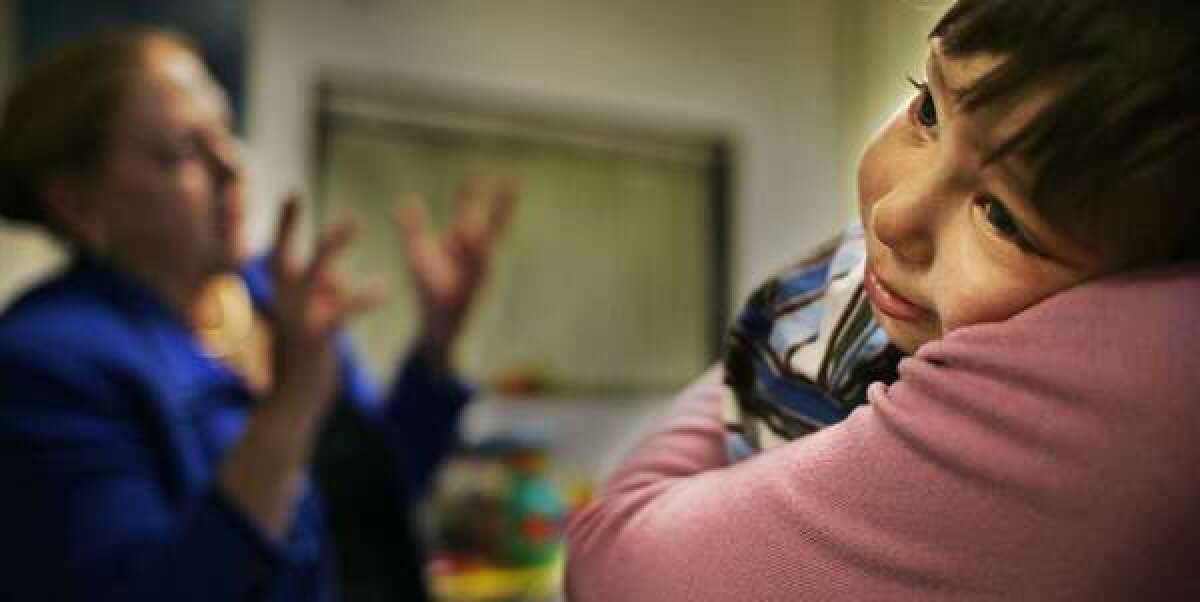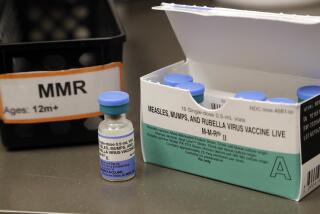Link between autism and mother’s immune system clarified

An immune system that ensures survival is one of the earliest gifts from a mother to her child. But sometimes, that gift can be a Trojan horse, sending soldiers that are programmed to attack the body’s own antigens into the fetus, where they interfere with brain development.
The result is maternal autoantibody related (MAR) autism, which may account for as much as 23% of the cases of that spectrum of brain disorders.
Now UC Davis researchers believe they have found the targets of these maternal autoantibodies, a potential step in the path toward preventive treatment for women contemplating pregnancy.
The researchers also demonstrated that these human autoantibodies can change the social behavior and brain mass of a close primate cousin, the rhesus monkey, in ways that are parallel to autism’s symptoms in humans.
Though the effects of these immunoglobulin-G compounds on animal and human brains have become more clear in recent years, why they arise in the first place remains a mystery.
“You’re making antibodies to your own proteins, rather than foreign bodies; it’s when the immune system gets it wrong,” said UC Davis immunologist Judy Van de Water, lead author of one of the studies, published Tuesday in the journal Translational Psychiatry. “What causes it in this case we may never know.”
Identifying the targets of these oddly programmed proteins has taken years. Van de Water and her colleagues have struggled to tease out all the identities of these compounds from a range of suspect molecules identified through chemical imaging.
But through a complex series of lock-and-key experiments, the team identified seven fetal antigens that were attacked by the maternal autoantibodies. All but one have been linked with the creation and development of neurons, particularly in the hippocampus. That region, associated with memory and learning, has been tied to autism in numerous studies.
The neurological role of one antigen, however, known as LDH, remains somewhat mysterious. Although LDH has been found in rodent fetal brains, where it is associated with cellular metabolism, the autoantibodies that attack it have not been shown to have a direct role in interfering with neurological development, according to the researchers.
Nonetheless, levels of LDH often are used to measure cell damage after exposure to toxins, such as the industrial solvent trichloroethylene -- an intriguing hint, perhaps, of an environmental factor in the rise of autoantibodies, the study suggested.
“We’re still building the total picture,” Van de Water cautioned.
While her team was delving into the cellular level, UC Davis neuroscientist Melissa Bauman, of the university’s MIND Institute (an acronym for Medical Investigaton of Neurodevelopmental Disorders), was leading a team looking at rhesus monkey behavior.
Studies with mice already had shown altered behaviors in offspring of mothers injected with human maternal antibodies, and Bauman’s earlier work with monkeys closely paralleled those studies.
When Bauman expanded the research with a more specific set of antibodies, she again chronicled odd behavior. Monkeys born to mothers injected with these human maternal autoantibodies behaved in awkward and potentially dangerous ways -- too readily approaching both familiar and strange peers, who did not reciprocate their social overtures. The monkeys’ mothers also seemed to be more protective of these offspring.
“We’re not attempting to create a monkey with autism, but we’re looking for changes in behaviors that parallel features of human autism,” Bauman said. “Our data suggest that the antibody-exposed animals were not following a typical trajectory of social development, and both their mother and their peers also appeared to detect these differences.”
Examination of the brains of these exposed monkeys showed that the volume of the male brains was far greater than that of normally developing monkeys – another parallel with human brain development among male autistics, who outnumber female autistics more than 4 to 1.
“We don’t know why,” said Bauman. “That’s our next question. Why is brain growth changed in the males but not the females.”
Because of ethical rules, sample sizes were very small, and Bauman acknowledged that the results will have to be reconfirmed before she can make stronger conclusions. The UC Davis teams also will have to look more closely at the neuron level of those brains, while continuing to delve into the immunological side of the mystery.
That broad approach, she said, has become typical of research into a brain disorder that remains a puzzle.
“Autism is changing the way we do science,” Bauman noted. “The idea of a single scientist working alone and coming across major discoveries is just not going to work for autism. It’s going to require collaboration across disciplines and really a new way of thinking about science.”







